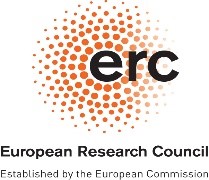Received:
2022-08-15 | Accepted:
2022-10-20 | Published:
2022-12-30
Title
Women in science, technology, engineering, and mathematics (STEM) "Egyptian case study"
Abstract
The women representation in science, technology, engineering, and mathematics (STEM) fields in Egypt is spanning hundreds and even thousands of years back. Yet, there is efforts needed to show women's contributions in recent history and current time. This paper highlights the role of women in STEM and their role as main partners in the science, technology and innovation system, participation of women in science for both decision-making and the scientific community. The survey has been designed to look at and support the participation and progression of women in STEM professionals and to encourage more girls and women to continue their studies and practical life in the STEM Fields. Literature, and particularly analytical literature, available around women in STEM in Egypt is limited; it is often tackled within the scope of women's employment, women's economic empowerment, or education. The paper reviews many challenges faced by women in science, technology and engineering and mathematics but from a practical point of view, where the questions are designed to reflect the scientific and leadership background as well as entrepreneurship and the relationship with the industry and to identify the obstacles that women face in being a business leader and the obstacles that women face in dealing with industry. Through the case study we unpack and examine the multiple thresholds of women and girls in higher education and employment in STEM fields in Egypt. The case study sample shows that while women are engaging in STEM at the tertiary education level, it is the integration into the labor force which makes it difficult for there to be a more equitable distribution of women across all STEM-related sectors. Egypt has a strong tradition of female empowerment and development but remains patriarchal in many aspects of progress and opportunity; the number of women in STEM education does not translate to those in the work force.
Keywords
women, STEM, Egypt, STEM survey, entrepreneurship
JEL classifications
Q20
, Q25
URI
http://jssidoi.org/ird/article/115
DOI
HAL
Pages
52-62
Funding
EU-funded WomenUP project ENI/2017/394-091
This is an open access issue and all published articles are licensed under a
Creative Commons Attribution 4.0 International License
References
Abdulaal, M., 2018. Egyptian Women in the Workforce: Then and Now. Egyptian Streets. Retrieved from: https://egyptianstreets.com/2018/10/16/an-evolution-of-the-working-egyptian-woman/
Search via ReFindit
Abuwatfa, W., Zamel, N., Al-Othman, A., 2021. Lessons learned from the underrepresentation of women in STEM: AI-enabled solutions and more. Energy and AI 5, 100086. https://doi.org/10.1016/j.egyai.2021.100086
Search via ReFindit
British Council, 2021.Women in STEM in Egypt Case Study. Egypt. Published by British Council. Retrieved from: https://www.britishcouncil.org.eg/sites/default/files/british_council_booklet_spreads_-_2021.pdf
Search via ReFindit
Canaan, S., Mouganie, P., 2019. Female Science Advisors and the STEM Gender Gap. SSRN Electronic Journal. https://doi.org/10.2139/ssrn.3396119
Search via ReFindit
CAPMAS (Central Agency for Public Mobilization and Statistics), 2018. Annual Bulletin of employment, wages and working hours statistics 2017. Cairo, Egypt. Retrieved from: https://www.capmas.gov.eg/Pages/Publications.aspx?page_id=5104&YearID=23462
Search via ReFindit
Cardella, G.M., Hernández-Sánchez, B.R., Sánchez-GarcÃa, J.C., 2020. Women Entrepreneurship: A Systematic Review to Outline the Boundaries of Scientific Literature. Frontiers in Psychology, 11. https://doi.org/10.3389/fpsyg.2020.01557
Search via ReFindit
Ceci, S.J., Williams, W.M., 2011. Understanding current causes of women's underrepresentation in science. Proceedings of the National Academy of Sciences 108, 3157-3162. https://doi.org/10.1073/pnas.1014871108
Search via ReFindit
Charlesworth, T.E., Banaji, M.R., 2019. Gender in Science, Technology, Engineering, and Mathematics: Issues, Causes, Solutions. The Journal of Neuroscience, 39, 7228-7243. https://doi.org/10.1523/jneurosci.0475-18.2019
Search via ReFindit
Darwish, S., Alzayed, S. and Ahmed, U., 2020. How Women in Science can Boost Women's Entrepreneurship: Review and Highlights. International Journal of Innovation Creativity and Change, 14(1), 453-470. https://www.ijicc.net/images/Vol_14/Iss_1/14145_Darwish_2020_E_R.pdf
Search via ReFindit
Dasgupta, N., Stout, J.G., 2014. Girls and Women in Science, Technology, Engineering, and Mathematics. Policy Insights from the Behavioral and Brain Sciences, 1, 21–29. https://doi.org/10.1177/2372732214549471
Search via ReFindit
Duffy, M.K., Ganster, D.C., Pagon, M., 2002. Social Undermining in the Workplace. Academy of Management Journal, 45, 331-351. https://doi.org/10.5465/3069350
Search via ReFindit
Egyptian Constitution. 2014 at: https://www.sis.gov.eg/newvr/theconistitution.pdf
Search via ReFindit
Fouad, N.A., Singh, R., Cappaert, K., Chang, W.H., Wan, M., 2016. Comparison of women engineers who persist in or depart from engineering. Journal of Vocational Behavior, 92, 79-93. https://doi.org/10.1016/j.jvb.2015.11.002
Search via ReFindit
Hechavarria, D., Bullough, A., Brush, C., Edelman, L., 2018. High-Growth Women's Entrepreneurship: Fueling Social and Economic Development. Journal of Small Business Management, 57, 5-13. https://doi.org/10.1111/jsbm.12503
Search via ReFindit
Herrmann, S.D., Adelman, R.M., Bodford, J.E., Graudejus, O., Okun, M.A., Kwan, V.S.Y., 2016. The Effects of a Female Role Model on Academic Performance and Persistence of Women in STEM Courses. Basic and Applied Social Psychology, 38, 258-268. https://doi.org/10.1080/01973533.2016.1209757
Search via ReFindit
Huang, J., Gates, A.J., Sinatra, R., Barabási, A.L., 2020. Historical comparison of gender inequality in scientific careers across countries and disciplines. Proceedings of the National Academy of Sciences 117, 4609-4616. https://doi.org/10.1073/pnas.1914221117
Search via ReFindit
Jiang, X., 2021. Women in STEM: Ability, preference, and value. Labour Economics, 70, 101991. https://doi.org/10.1016/j.labeco.2021.101991
Search via ReFindit
Kelley, D. J., Baumer, B. S., Brush, C., Green, P. G., Mahdavi, M., Majbouri, M., et al. (2017). Global Entrepreneurship Monitor 2018/2017 Report on Women's Entrepreneurship. Babson College: Smith College and the Global Entrepreneurship Research Association. https://scholarworks.smith.edu/conway_research/1/
Search via ReFindit
Keune, A., Peppler, K.A., Wohlwend, K.E., 2019. Recognition in makerspaces: Supporting opportunities for women to “make†a STEM career. Computers in Human Behavior, 99, 368-380. https://doi.org/10.1016/j.chb.2019.05.013
Search via ReFindit
Khalil, R., Moustafa, A.A., Moftah, M.Z., Karim, A.A., 2017. How Knowledge of Ancient Egyptian Women Can Influence Today's Gender Role: Does History Matter in Gender Psychology? Frontiers in Psychology, 07. https://doi.org/10.3389/fpsyg.2016.02053
Search via ReFindit
Langowitz, N., Minniti, M., 2007. The Entrepreneurial Propensity of Women. Entrepreneurship Theory and Practice, 31, 341-364. https://doi.org/10.1111/j.1540-6520.2007.00177.x
Search via ReFindit
Lincoln, A.E., Pincus, S., Koster, J.B., Leboy, P.S., 2012. The Matilda Effect in science: Awards and prizes in the US, 1990s and 2000s. Social Studies of Science, 42, 307-320. https://doi.org/10.1177/0306312711435830
Search via ReFindit
Mansour, H., Rees, D.I., Rintala, B.M., Wozny, N.N., 2021. The Effects of Professor Gender on the Postgraduation Outcomes of Female Students. ILR Review, 75, 693-715. https://doi.org/10.1177/0019793921994832
Search via ReFindit
Noguera, M., Alvarez, C., Urbano, D., 2013. Socio-cultural factors and female entrepreneurship. International Entrepreneurship and Management Journal, 9, 183-197. https://doi.org/10.1007/s11365-013-0251-x
Search via ReFindit
Sarseke, G., 2017. Under-Representation of Women in Science: From Educational, Feminist and Scientific Views. NASPA Journal about Women in Higher Education, 11, 89-101. https://doi.org/10.1080/19407882.2017.1380049
Search via ReFindit
Saxena, M., Geiselman, T.A., Zhang, S., 2019. Workplace incivility against women in STEM: Insights and best practices. Business Horizons, 62, 589-594. https://doi.org/10.1016/j.bushor.2019.05.005
Search via ReFindit
UIS-UNESCO, Fact Sheet No. 55 June 2019 FS/2019/SCI/55. Retrieved from: http://uis.unesco.org/sites/default/files/documents/fs55-women-in-science-2019-en.pdf
Search via ReFindit
UN Women, 2020. Women in science, technology, engineering and mathematics (STEM) in the Latin America and the Caribbean region Retrieved from: https://lac.unwomen.org/en/digiteca/publicaciones/2020/09/mujeres-en-ciencia-tecnologia-ingenieria-y-matematicas-en-america-latina-y-el-caribe
Search via ReFindit
Wang, M.T., Degol, J.L., 2016. Gender Gap in Science, Technology, Engineering, and Mathematics (STEM): Current Knowledge, Implications for Practice, Policy, and Future Directions. Educational Psychology Review, 29, 119–140. https://doi.org/10.1007/s10648-015-9355-x
Search via ReFindit












 RSS 1.0
RSS 1.0